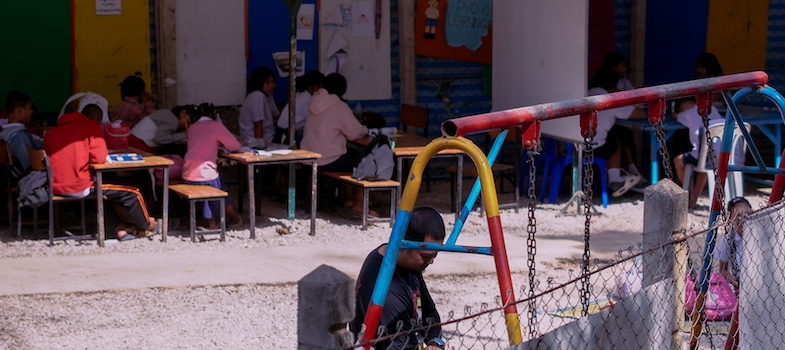Youssef Bilani Post 1
• 14 September 2025, 11:20 PM • Edited by the author on 14 September 2025, 11:22 PMEmpowering Educators: From Theory to Transformative Practice
On implementing new ideas in the learning and teaching environment, drawing from the content and my knowledge base.
Reflecting on Weeks 1 and 2: Implementing New Ideas
To effectively discuss the implementation of new ideas, it's helpful to consider what those ideas might have encompassed. Given the context of the provided sources, potential themes for weeks 1 and 2 could revolve around professional development, effective teaching strategies, and the integration of technology or open educational resources (OER).
Scenario 1: Focus on Professional Development and Teaching Strategies If weeks 1 and 2 focused on enhancing teaching practices through professional development, such as those offered by Teaching Strategies, here's how you might have applied them:
Ideas from Weeks 1 & 2: The importance of continuous professional learning, personalized learning journeys for educators, and access to expert guidance to improve classroom outcomes. This could also include specific strategies for implementing curricula like The Creative Curriculum or using assessment tools like GOLD.
What Happened (If Implemented): Increased Engagement with Professional Learning: You might have started exploring online courses or webinars related to early childhood education, perhaps focusing on areas like the "Science of Reading" or specific curriculum implementation techniques. For example, engaging with the "Ask an Expert" hotline could have provided immediate answers to classroom challenges. Application of New Strategies: If the focus was on The Creative Curriculum, you might have tried incorporating more play-based learning activities or integrating explicit literacy and math instruction as suggested by the curriculum's approach. Observing changes in student engagement or understanding could be a key outcome. Community Engagement: Participating in moderated discussion forums with other early childhood educators could have provided valuable insights and peer support, helping you refine your approach based on shared experiences.
Plans for Implementing (If Not Yet Implemented): Accessing On-Demand Resources: I plan to dedicate specific time each week to explore the "400 hours of research-based content" available through professional development platforms, focusing on areas where I feel my students could benefit most, such as individualized skill development for infants and toddlers. Utilizing Coaching Support: If available, I would seek out a dedicated coach or mentor to guide me through the implementation of new teaching strategies, particularly those related to curriculum fidelity and maximizing child outcomes. The "Teacher Acceleration Program" with its dedicated coach and daily live office hours sounds particularly beneficial for rapid onboarding. Tracking Progress: I would utilize any available dashboards to track my professional development hours and progress, aiming to earn CEUs or state training hours, which are often crucial for career advancement and demonstrating commitment to ongoing learning.
Scenario 2: Focus on Open Educational Resources (OER) and Open Education Initiatives Given the mention of the Morocco OER Strategy Forum, if weeks 1 and 2 touched upon Open Education, here's how might have applied those ideas:
Ideas from Weeks 1 & 2: The concept of Open Education as a human right, the benefits of OER for enhancing quality and accessibility of learning, and the importance of collaborative creation and sharing within communities of practice. This could also include understanding the role of governmental programs like GENIE in promoting ICTs in education.
What Happened (If Implemented): Exploring OER Repositories: You might have started searching for and utilizing open educational resources relevant to your teaching subjects, perhaps through platforms like the OER World Map or local Moroccan university initiatives like UC MOOCs. Integrating OER into Lessons: You could have incorporated openly licensed textbooks, videos, or interactive exercises into your lesson plans, observing how these resources impacted student understanding and engagement. Sharing and Collaboration: You might have engaged in discussions about OER with colleagues, potentially sharing resources you found useful or even contributing to the creation of new open materials within your institution or a local community of practice.
Plans for Implementing (If Not Yet Implemented): Researching Local OER Initiatives: I plan to investigate the Open Education initiatives within Moroccan universities, such as those at Université Ibn Zohr or Cadi Ayyad University, to see how I can leverage their resources and contribute to the local OER ecosystem. Adopting Open Practices: I will explore ways to integrate open educational practices into my teaching, such as encouraging students to create and share their own learning materials or using open-source tools for collaboration. Advocating for OER: I intend to discuss the benefits of OER with my colleagues and administrators, highlighting how it can enhance learning quality and accessibility, aligning with the broader vision of Open Education as a human right.
Combining and Reflecting Regardless of the specific focus, the core idea is to continuously improve teaching and learning. The provided content emphasizes that effective professional development, whether through structured programs or community engagement, leads to better teacher retention and improved child outcomes. Similarly, the OpenMed project highlights the potential of OER to transform education by making it more accessible and collaborative.
As an educator, you are in a unique position to blend these approaches. For instance, you could utilize professional development opportunities to learn how to effectively integrate OER into your curriculum, thereby enhancing both your teaching skills and the resources available to your students. The flexibility of "anywhere, anytime learning" offered by platforms like Teaching Strategies can be particularly beneficial, allowing you to adapt professional growth to your schedule. The key is to move from theoretical understanding to practical application, observing the impact, and refining your approach based on real-world feedback from the students and your own reflections. The continuous cycle of learning, implementing, and evaluating is fundamental to effective teaching.
